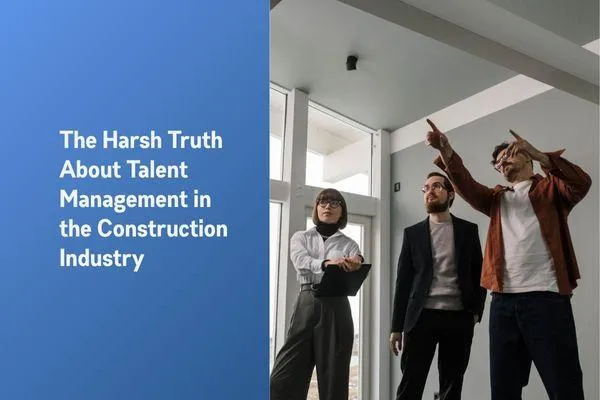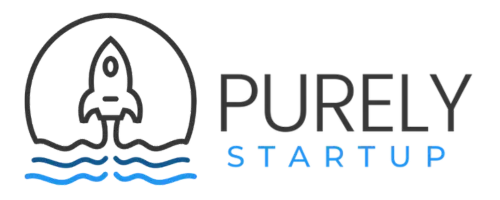
The Harsh Truth About Talent Management in the Construction Industry
The construction industry has a people problem, and it’s hitting a breaking point. Skilled workers are retiring faster than they’re being replaced, projects are getting more complex, and the demand for labour is at an all-time high.
Smart companies are fighting back with a fresh approach and strategic talent management in the construction industry.
Instead of scrambling to fill gaps, forward-thinking firms are building pipelines. Outreach to students by construction employers on Handshake jumped 46% in just one year, and internship postings are up across the board. Why? Because early talent is paying attention.
But attracting talent is just the beginning. In 2025, winning companies will be those that develop, retain, and empower their workforce through smarter systems, tech-driven strategies, and a people-first mindset. Talent management has now become a business imperative.
In this blog, we’ll break down why talent management in the construction industry will lead to success and how a crisis can be turned into a competitive edge by putting talent front and center.
The Harsh Truth About Talent Management in the Construction Industry
What is Talent Management in Construction?
Why Talent Management Is Essential in the Construction Industry
Labour Shortages and Skilled Worker Gaps
Disruption from New Technologies
How to Drive High-Impact Talent Management in the Construction Industry
Smart Talent Acquisition & Onboarding
Employee Engagement & Retention
Succession Planning & Knowledge Transfer
Ways to Transform Talent Management Through Technology
Digital Collaboration for Hybrid Workforces
Workforce Analytics for Proactive Management
Proven Ways to Resolve Labour Issues in the Construction Industry
1. Supporting Mental Health & Well-being with AI
2. Managing a Multi-Generational Workforce with Adaptive Learning Tools
What is Talent Management in Construction?
Talent management in the construction industry is about building a strong, skilled, and reliable team that can handle the challenges of modern projects. It’s how you find, grow, and keep the right people, from the jobsite to the head office.
Here’s what talent management in construction means, in simple terms:
It starts with hiring the right people. Whether it's skilled tradespeople or project managers, the goal is to find individuals who are both qualified and a good cultural fit for the company.
Next comes proper onboarding and training. New hires need the right tools, safety knowledge, and support to feel confident and perform well from day one.
Talent management also involves helping workers grow and develop over time. This includes offering apprenticeships, certifications, and hands-on learning opportunities to keep their skills sharp and up-to-date.
Keeping good employees is just as important as hiring them. Creating a positive work environment where people feel respected, supported, and motivated encourages them to stay in the long term.
It involves planning for the future. As experienced workers retire, companies must prepare their younger staff to assume leadership roles and continue the business forward.
In short, talent management in the construction industry is about more than just filling jobs. It’s about building a strong, skilled, and loyal workforce that can grow with the company.

So, how is it different from traditional HR?
While HR focuses on policies, payroll, and compliance, talent management is a strategic, long-term plan for building a workforce that drives business success. In construction, where every project depends on skilled hands and sharp minds, this difference matters.
Great talent management leads to:
Safer job sites
Better project quality
Lower turnover
Higher profits
Talent management is about people, as they’re what makes or breaks a construction project.
Why Talent Management Is Essential in the Construction Industry
Talent management in the construction industry has become a strategic necessity. Due to the changes in the workforce and project requirements, construction companies must develop new strategies to attract and retain employees.
Let's discuss the reasons why these issues are very important today.

Labour Shortages and Skilled Worker Gaps
The current labour shortage has become a massive problem in the construction industry. A skills-deficient workforce is being generated due to an ageing population and increased retirements. Trade schools are facing a significant drop in enrollments, which has left construction companies unable to fill vacancies with skilled workers.
Between August 2023 and July 2024, there were about 382,000 job openings each month in the industry. More than 90% of contractors reported having a difficult time finding workers for both hourly and salaried positions.
Here, mentorships and entry-level training programs can attract young people to the industry, making it more accessible and appealing.
👉 Stop settling for “just okay” candidates. Learn the proven strategies to attract and hire elite construction management talent.
Changing Worker Expectations
Today's workers expect more than a paycheck. Flexibility, growth opportunity, and a sense of purpose are key motivators.
The construction industry has to change. Flexible working conditions, wellness programs, and opportunities for promotion can attract a large number of workers. A human-centred approach to addressing employee needs strengthens employee morale, reduces turnover, and enhances the company's reputation.
Disruption from New Technologies
Project planning and execution in the construction industry are evolving with the integration of AI, automation, and robotics. While these tools enhance efficiency, they also generate the requirement for newly developed skill sets. The modern construction worker should have an equal understanding of software as he has of a wrench.
It's always worth upgrading and learn new skills. To remain competitive, companies must invest in human resource development regularly. The latest trend is agile workforce models, where employees can adapt their roles and respond quickly to changing needs. This makes sure that teams are not only competitive but also that projects are progressing as planned.
How to Drive High-Impact Talent Management in the Construction Industry
High-impact talent management in the construction industry is about creating a workforce that can sustain itself through long-term success. Every step, from recruitment to retention, should fulfill both business goals and worker needs.
Here are the strategies that make it possible to hire the best talent:
Smart Talent Acquisition & Onboarding
Today, hiring is not just based on resumes. AI in the construction industry may help interview candidates more efficiently and effectively for all job positions. However, unlike technology, human management is the key to conducting a fair and sensible culture fit.
Onboarding plays a significant role in retention after hiring. A well-defined onboarding process improves confidence and credibility. Offering mentorship and safety training ensures a smooth transition for new hires, resulting in longer-term engagement.
Learning & Development (L&D)
Consistent education is the foundation of talent management in the construction industry. Microlearning modules, course accessibility through mobile devices, and industry certifications offer employees a means to grow without leaving their jobs.
Connecting traditional education with innovative training techniques results in quicker learning among employees and enables them to keep up with the changes. Such a strategy not only develops a knowledgeable team but also prepares it to face any uncertain crisis.
Employee Engagement & Retention
Ranging from hands-on labour to office roles in project management and construction, these roles differ widely. Engagement strategies must consider these differences. As a result of regular feedback and open channels of communication, coupled with a culture of appreciation and recognition, all employees feel valued and appreciated.
Succession Planning & Knowledge Transfer
With more people retiring, it is crucial to have the institutional knowledge. If this information is shared with the retiring staff, the company will be affected.
A double approach is the most effective. This includes mentorship initiatives for the younger employees and recording processes and competencies in digital systems. This guarantees not only the easy transitions but also the retention of valuable knowledge for the future.
Ways to Transform Talent Management Through Technology
AI is enhancing the methods by which construction companies recruit and hire the most skilled workforce. Through resume screening and automated interviews, it not only speeds up the process of choosing candidates but also helps to find better matches.
Here, we will discuss the impact of technology on recruitment in the construction industry. Continue reading.
AI in Recruitment & Hiring
AI has recruitment tasks automation capabilities such as resume filtering, skills matching, and even the conduct of initial video interviews. Such a process not only saves time but also results in higher-quality candidates.
Faster shortlisting of top candidates.
Skill-based matching with job requirements.
Automated scheduling and communication.
However, human intervention is undoubtedly necessary to eliminate bias and ensure that the new employee aligns with the organizational culture.
Digital Collaboration for Hybrid Workforces
Modern construction teams can be located in different places. Cloud-based collaboration software facilitates smooth communication. Project dashboards and mobile apps provide instant updates, enabling faster decision-making.
Centralized project documentation.
Easy communication across teams.
Improved visibility into task progress.
Workforce Analytics for Proactive Management
Data-driven talent management in the construction industry allows firms to act, not react. Analytics can reveal performance trends, forecast turnover, and identify skills gaps.
Real-time dashboards to monitor labour performance
Predictive analytics for turnover risk
Skills mapping to inform training investments
👉 Check out the list of AI tools every HR team must try.
Proven Ways to Resolve Labour Issues in the Construction Industry
The construction industry continues to face serious labour challenges that go far beyond hiring. From mental health concerns to generational differences and lack of diversity, today’s workforce issues demand smarter, scalable solutions. Fortunately, AI-driven tools are changing the game, offering real, data-backed ways to address these problems.
1. Supporting Mental Health & Well-being with AI
Construction work is both physically demanding and mentally draining. Long hours, tight deadlines, and high-risk environments contribute to burnout, anxiety, and even substance misuse. AI can help here in several ways:
AI-powered wellness platforms can monitor stress indicators and provide mental health check-ins and support resources.
Predictive analytics can flag early signs of burnout by analyzing productivity, absenteeism, and shift patterns.
AI chatbots offer confidential 24/7 support, making it easier for workers to seek help discreetly.
2. Managing a Multi-Generational Workforce with Adaptive Learning Tools
Today’s construction teams span four generations, each with unique learning styles and expectations. AI tools make it easier to deliver customized training and engagement:
Adaptive learning platforms tailor content by age, skill level, and learning pace, making training more effective.
Smart communication tools use natural language processing to bridge gaps between teams and ensure everyone stays aligned.
Digital mentorship programs, powered by AI, match younger workers with experienced mentors, fostering knowledge transfer and collaboration.
3. Advancing DEI in a Traditionally Male-Dominated Industry
Diversity, equity, and inclusion are essential for driving innovation and fostering long-term growth. AI can remove bias and improve access:
AI-assisted recruitment tools anonymize resumes and use objective scoring to remove unconscious bias from the hiring process.
Sentiment analysis tools assess workplace feedback to ensure all voices are heard and respected.
AI-based DEI dashboards track hiring, retention, and promotion data to ensure fair representation and transparency.

Final Word From Purely Startup
In 2025, construction companies that prioritize innovative talent management will lead the industry. At Purely Startup, we help you scale with AI-driven recruitment, workflow automation, and access to expert remote talent. Our solutions are built to reduce overhead, improve project execution, and keep your team ahead of the curve.
We also assist with proposal generation, content drafting, and process optimization so you can focus on building, not busywork. We are a behind-the-scenes growth engine.
Book a complimentary consultation below to discover how we can help you achieve your goals.


